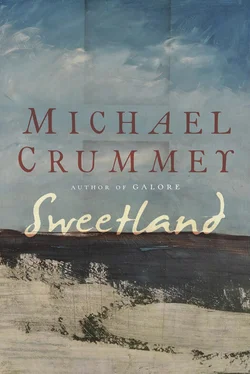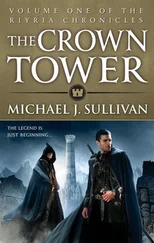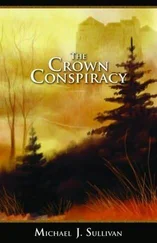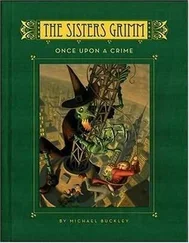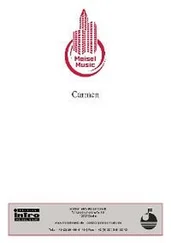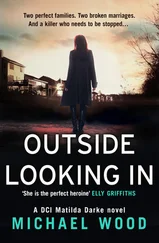How long before I can batter the hell out of here?
There is one more surgery for the face and neck.
No more surgeries, he said.
Mr. Sweetland.
I’m fine the way I am. I feels fine.
The doctor rose up on his toes a second time. He turned to the assembly and said he would meet them outside. He patted his pockets, looking for his cigarettes as he waited for the last of them to file out.
This final surgery I speak of, he said.
No more surgeries.
It is not necessary, the doctor said. Strictly speaking. It is largely for cosmetic purposes. To deal with the scarring and discolouration. It will help make the injury less apparent. Your face, he said and he gestured toward it. Of course, it’s up to you, he said.
How long before I can leave?
If everything goes well, if there are no secondary infections or other complications, I would say four to six weeks.
A month, then, Sweetland said.
A month, the doctor said. He opened the cigarette pack, offered it toward the bed. Sweetland took one, leaning forward as the doctor struck a match. You are anxious to get home to someone, he said. Someone is waiting for you?
Sweetland shook his head. Not really, he said, no. He blew smoke up at the ceiling. There’s no one waiting, he said.
HE WOKE TO A GALE OF WIND and sleet and high winds that brought waves overtop of the breakwater. The house creaking on its foundation, the windowpanes bowing like sails in each gust. The tide turning and on the rise. He felt oddly glassy and disoriented and thought to keep the dog inside out of the weather until he remembered it dead and buried up in the new cemetery.
He had a hard time travelling down to the beach, leaning into the teeth of the gale. His hat torn off his head and sailing away. Salt stinging his eyes as wind whipped the spume up the hill. The tarp over the dory was long gone and the boat swung wildly at the end of its painter, tipping on its side and over onto its belly as the sea muscled in. Sweetland waded up to his knees as the waves receded, trying to get a handle on the line to drag the boat to safety. The suck of water sieving rocks and sand from beneath his boots. Another wave flipped the dory a full rotation in the air and took Sweetland off his feet altogether, both hands on the rope to keep from being hauled body and bones into the wilderness of the cove. He scrambled up, hauling all he was worth to bring the boat close. Dragging it as far off the landwash as the length of rope allowed, the sea rising high enough around him to set it afloat. He worked to untie the painter, his hands almost too numb to manage. He leaned back on the bow when it was free, nudging the boat inches at a time, until he wedged it into a sheltered nook above the beach where he guessed it might be safe. Loaded its belly with beach rocks and rusted lengths of iron scrap and anything else he thought might weigh the dory enough to hold it against the wind.
He stripped out of his soaking clothes when he reached the kitchen, wrapped himself in a quilt. From the kitchen table he watched the breakwater disappear in surge after surge of white, thinking each time the entire thing might disappear. He trawled through the radio dial looking for a forecast, to see how bad things might get, but couldn’t make out more than a few words over the storm’s static. Moderate winds, he thought he heard. Flurries. Minus one.
The massive stones placed at the mouth of the cove were shifting as he watched, the breakwater settling and coming apart like ice dissolving in a bowl of water. The ocean pouring raw into the cove for the first time in a generation, the waves lipping up over the government wharf, pounding onto the beach. The salt of the water’s spray blowing against his windows, riming the glass. If his stage hadn’t been burned, he knew, the storm would have taken it down and floated every stick out into the Atlantic.
The feeling slowly came back to his hands as he sat there, a burning sensation in the palms that was almost pleasurable. He looked down to see the red scars of the rope where he’d grabbed and held on while the ocean tried to take him under.
By suppertime he was burning up with a fever, too sick to move much beyond the kitchen. He was on his feet long enough to light a kindling fire to boil the kettle and to drag himself up the stairs to the bathroom so he could sit. Shivering so violently he had trouble staying on the seat. Downstairs he made himself a mug of pap, crumbling stale crackers into sweet tea, and he crawled back into the daybed before he could finish even that. The weather in a rage outside.
The fever broke two days later, but he was still too weak and unsteady to leave the house. He sat at the kitchen window, listening to the forecasts and trying to match them to the conditions outside, though there wasn’t a single reliable detail in the announcements. As if the island had drifted into its own latitude, beyond the reach of the CBC’s meteorologists.
He leafed aimlessly through Duke’s magazines without reading a word or even registering the pictures. It was a mechanical activity that offered some relief from the tedium of fatigue, a sense of forward progress, of time passing. Picking up one after another and blindly turning the pages start to finish, reaching for the next. He’d made his way through to the bottom third of the pile when he began coming across the mutilated articles, squares and rectangles cut from the pages, and even then it took a while to process what he was seeing. He went to the drawer where he’d put away the threatening notes and he spent half an hour matching them to the words and letters scissored from the headlines. The door to the barbershop was never locked and he supposed anyone could have slipped in and borrowed a magazine for the purpose at hand. Though he couldn’t guess why they might see the need to return it when they were done.
All those months the man had held his counsel in Sweetland’s presence, refusing to offer a word of advice one way or another. Sweetland shook his head. “You’re a lousy cunt, Duke Fewer,” he said. He didn’t know if he should be amused or murderous or heartbroken. But he didn’t have it in him to feel much of anything at all.
He burned the notes and the magazines in the stove and he occupied himself then with simply staring out the window. Hours watching the slice of cove visible from the kitchen table. He could see the ruined line of the breakwater, the remaining stones lying low in the ocean, the waves pushing past them into the harbour’s calm. It was the end of the government wharf, that loss. Though it would be years, he guessed, before the sea managed to finish the job.
He was days into that vigil before Sweetland noted the extended lull in the world he was observing. That there hadn’t been a sign of a living creature in all the time he’d sat there. Even the gulls seemed to have disappeared. He’d grown accustomed to silence and stillness in his months alone. But the absence out there seemed of a different order altogether and it gave a new focus to his sedentary time at the table, watching to prove his observation wrong.
Near the end of March he caught sight of a ring seal inside the remains of the breakwater, the dark head bobbing in the shallows of the cove. It was early in the year to see them this far south and Sweetland waited at the kitchen window a long time. Afraid he might have imagined it, just to address the lack he was seeing out there. He was ready to dismiss the sighting altogether until he spotted the creature near the government wharf. He went in and out of the porch, gathering up his coat and boots, rummaging for ammunition. His limbs felt brittle and insubstantial, every motion shadowed by the fever’s aftermath. His heart pounding in his throat.
Читать дальше
